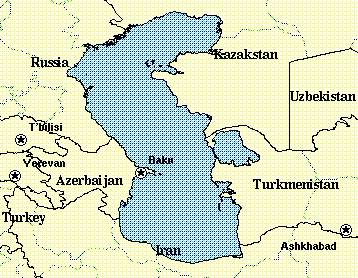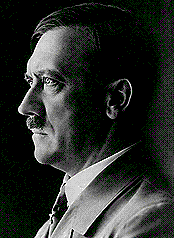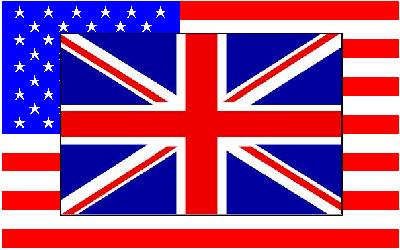| The American and British ruling circles have been engaged in a policy
of military imperialism for several centuries. The American revolution
was fought to bring the United States under new, non-British rulers, with
the new regime sold to the public as a democracy. In the twentieth century,
these American ruling elites have revolved around the Rockefeller, Brown,
Harriman, and Morgan family dynasties. The Bush family, beginning with
Prescott Bush, have served as satraps of the Rockefeller, Brown, and Harriman
interests.
As we've seen, in earlier articles on these imperialistic rulers (Part
1, Part 2), the British and American ruling cabals decided that the energy
of choice for the world would be oil and natural gas (not coal)--just as
the drugs of choice would be alcohol and tobacco.
To overcome the problem of his oil holdings being broken apart by the
U.S. government in 1911, John Rockefeller set out to control the world's
energy reserves. World War I was the strategy of the world oil cartel (Standard,
Shell, British Petroleum) to take over the colonies of France, Holland,
Spain and Portugal. The engines of war now ran on petroleum-based products,
so ownership of oil could now determine who won or lost a war--therefore
who would rule the world. Oil, instead of gold, became the token of power.
By 1919, the Oil Empire, not based on countries or nations, but on
private corporations, now ruled the world.
The Big Three oil cartel, which controlled oil in the Persian Gulf
and southeast Asia areas, wanted to gain control over the vast oil reserves
in the southern part of the Soviet Union. They financed the fascist regimes
in Germany, Italy, and Japan with the hope that they would invade and control
Russia. The Oil Rulers planned to defeat the German, Italian, and Japanese
regimes and take control of the oil reserves in the Soviet Union. The Rockefeller
circle also planned to take control of Persian Gulf oil from the British-Persian
Oil cartel and seize control of southeast Asian oil from Royal Dutch Shell.
| The United States was brought into the second world war when in July
1941, President Roosevelt signed an embargo to stop all shipping to Japan.
This was said to be in retaliation for the recent Japanese invasion
of French Indo-China. Roosevelt's U.S. embargo cut off the Japanese oil
supply, which
would have quickly shut down Japan's entire economy.
In late November 1941 the Japanese sent a written "war warning" through
diplomatic channels to Washington, demanding that the embargo be stopped,
or else American sites in the Pacific would be attacked in retaliation.
That formal diplomatic warning was ignored and the U.S. made no reply.
Just two weeks later the Japanese bombed the American embargo ships
located
in Pearl Harbor. |
 |
In 1939 and '40, the Germans and Italians did not attack Russia as the
Big Three had planned. Instead, German General Rommel rushed across North
Africa to grab the Suez Canal and control all oil shipping through the
canal. Rommel then planned to drive through to Persia and toss out the
British from the British-Persian oil fields. Meanwhile, after a failed
attack on Russia in 1939, the Japanese swept through Southeast Asia and
seized all the oil holdings of Royal Dutch Shell. With the defeat of Japan
in 1945, most of those Royal Dutch fields came under the control of Rockefeller's
Standard Oil.
Hitler had planned to capture the oil fields in Romania by 1939 so Germany
would have its own supply of oil. This was accomplished. Then Rommel was
to have captured the oil fields in Persia by 1941,the oil fields in Russia
in 1942. Only then would Hitler have sufficient fuel for prosecuting a
war with the United States. But less than a week after the Pearl Harbor
attack, the Japanese convinced Hitler to declare war on the United States.
~~~
| Hitler agreed only if the Japanese would attack Russia, since German
troops were now bogged down in Russia and Hitler would gain strategic advantage
if the Russians had to defend themselves from Japan on their eastern flank.
When the Japanese failed to attack Russia, Hitler was driven out of
Russia and now was without a fuel source. The Romanian oil fields in Ploesti
were insufficient for Germany to carry on a war on two fronts, and Germany's
war effort began to collapse.
The last major German campaign was the Battle of the Bulge, in which
Field Marshal Gerd von Rundstedt was to attack the invading allies with
his tanks, then capture the Allied fuel dumps.
This would stop the American and British forces and obtain the necessary
fuel for Germany to continue its war effort. But General Eisenhower ordered
the Allied fuel dumps burned and Germany was defeated. |
 |
~~~
At the end of World War II, the British-Persian Oil Company controlled
the vast oil fields in Iran. The Persians had declared their alignment
with Adolf Hitler's Nazi "Aryan Race" movement and were fully expecting
German General Rommel to come rushing across Africa and "free" them from
the British. They had even proclaimed their alignment with Hitler by changing
the name of their country from Persia to "Aryan," (or "Iran" in the Farsi
language), but the Germans failed to save them |

